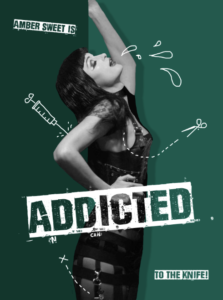
Cemetery Boys,” how do I love thee? Let me count the ways…and seriously, there are a whole lot of ways that I can count. But before I can wax poetic on that, I’ll lay down a little background on what this book’s all about, on the off chance you don’t have your finger on the pulse of queer young adult novels.
Aiden Thomas’ debut novel “Cemetery Boys” is a young adult fantasy novel which was published by a Macmillan imprint on Sept. 1st, 2020. However, readers have been eagerly awaiting the release of this book for months in advance, since the historic news of its publication broke. Despite the relentless work of people of color, queer people, and other marginalized demographics to diversify the publishing industry, the majority of books released by mainstream publishers remain white, cis, straight narratives by white, cis, straight authors. But in April of 2019, it was announced that MacMillan, one of the “Big 5” trade publishers, was planning to release a fantasy novel by a queer, trans, Latinx author about a gay and transgender Latino boy. That novel? “Cemetery Boys”.
“Cemetery Boys”’ star, Yadriel Flores, belongs to a multigenerational family of “brujx” from Los Angeles with a gender-based magic system; the women of his family can heal injuries and the men can summon ghosts before releasing them to the afterlife. Although Yadriel’s family (ostensibly) supports his trans male identity, they don’t believe that he can use magic the way other men can. In an effort to prove his magic before Día de Muertos, he summons the spirit of a boy from his high school, Julian Diaz. But once summoned, Julian refuses to be released until he can resolve some unfinished business. This is a problem for a few reasons: (a) Yadriel needs to release Julian—not only to prove he’s a real brujo, but to prevent Julian from becoming feral, as ghosts do when they remain on the mortal plane for too long. (b) Julian’s not the only kid in L.A. who’s gone missing-presumed-dead recently, and the pattern is starting to add up to something scary. (c) The longer Julian sticks around, the less Yadriel wants him to leave…
You’d love to know more about the person who crafted this compelling narrative, you say? Well, here’s a fun fact about author Aiden Thomas, who uses they, he, and él pronouns — they’re a Mills alum! In fact, Thomas obtained both a bachelor’s degree in English and an MFA in Creative Writing from Mills, winning multiple awards from Mills for their writing throughout their graduate and undergraduate years. (Their upcoming 2021 release, a modern-day Peter Pan retelling called “Lost in the Never Woods”, originated as their graduate thesis.) They were also a member of Mills’ varsity crew team for several years, demonstrating that rowing while queer is a time-honored Mills tradition.
Thomas identifies as queer, trans, Cuban, and Latinx, and describes the cast of “Cemetery Boys” as “entirely Latinx.” Their protagonist, Yadriel, is Cuban and Mexican, gay, and transgender; his love interest, Julian, is gay and Colombian. The #ownvoices influence on the narrative (a hashtag started in 2015 by author Corrine Duyvis to help readers find books, as Duyvis puts it, “about diverse characters written by authors from within that same diverse group”) is integral to every part of the book, and the love and attention with which it was clearly written.
Take the writing of Yadriel’s trans identity, which Thomas handles in a way I’ve never quite seen before. Unlike many queer protagonists, Yadriel does not “come out” over the course of the novel, but begins the narrative publicly out and dealing with the everyday consequences of that outness. Trans protagonists as written by cis authors often focus heavily on the protagonist’s body, and the physical dysphoria and mental anguish they feel about living in it. By contrast, much of Thomas’ explicit treatment of Yadriel’s gender focuses on his gender presentation — what he wears, how he moves, the language he and others use to refer to him, et cetera. And while there are certainly moments of dysphoria, Thomas focuses as much or more on the euphoria Yadriel feels when he is understood correctly. This treatment allows him much more agency, and much more joy, than trans characters often get to experience.
Yadriel is also given a romance far richer and more complex than trans characters typically get, or really most characters point-blank, because most authors simply don’t have Thomas’ range. I do not exaggerate when I say this romance gave me everything I could imagine wanting. The drama, passion, and high stakes of romance in a cishet movie? Done. That seemingly unique feature of queer romance where you recognize and respect the other person as a full human being? Done. A refreshing lack of angst about whether Julian, a gay cis boy, can be attracted to a non-cis-passing trans boy like Yadriel, because obviously he can? Done. Bickering? Pining? Teenage shenanigans? Tenderness? Seeing the other person more clearly than they see themself? You name it, Thomas includes it. This strangers-to-friends-to-lovers speedrun has me re-evaluating my standards for every romance, fictional or personal, from this point onward. I need to move on lest I never stop talking about this, but I just need to add; the casual, kind ways in which Julian validates Yadriel’s gender are clearly a significant part of why Yadriel starts to trust him and then fall for him, and, like….that’s so romantic. This is peak male performance. I’d fall in love with a guy myself if he was this chill and respectful, and I’m a lesbian.
Speaking of lesbians, Mills students may particularly enjoy Yadriel’s best friend, Maritza Santima. I’m not actually sure if she’s queer, but I sure hope she is. She’s a vegan, Haitian and Puerto Rican bruja (though she refuses to use her healing powers due to the fact that they require animal blood) with hair dyed pink and purple; two massive, stupid, and stupidly cute pit bulls named Michelangelo and Donatello; and an unerring ability to guess others’ astrological signs. If Maritza wants to go to college at any point before or during her fabulous career in weapon-making (that’s right, ladies, she can forge weapons), I think she would kill it at an HWC.
To return to the text, though, she makes up a wonderful third leg to her friendship triangle with Yadriel and Julian. While female side characters are prone to falling into one of the polarized tropes of “nurturing, selfless group mother” or “strong woman who lacks feelings or character traits aside from toughness,” Thomas avoids the harmful aspects of either trope by writing Maritza with nuance and complex personality. She manages to provide much-needed emotional support and common sense to both her boys in important moments; however, she’s also confident (and correct) that she’s the coolest person in any space she enters, and gets to show off the full extent of her badassery, with or without her magic.
There are elements of “Cemetery Boys” that I’m not able to critically review. As a non-Latinx person, I’m not equipped to accurately evaluate the representation of Latinx people and culture that is so integral to this novel. Again, though, this #ownvoices writing appears lived-in and loved-in to me, and I’m impressed by several choices Thomas made here; for instance, they do not italicize any of the Spanish dialogue frequently used throughout the book. Although Spanish and other non-English languages are conventionally italicized in English novels, italicization usually works to “other” the language in question. By declining to separate the languages in this way, Thomas presents Spanish and English side-by-side as equal norms.
And before I end this review, I want to add the disclaimer that this is not a perfect book (not that such a thing exists). The first ten percent or so is noticeably slower than the rest, perhaps due to the significant percentage of “info-dumping” occurring in early pages (though this is arguably necessary to some extent, to help the reader navigate Thomas’ mythos and magic system without confusion). A few characters within the ensemble cast feel more like plot devices than fleshed-out people. And at times the magic use stretches to heights that could be likened to deus ex machina. But the further I read, the fewer critical thoughts came into my mind. All I could focus on was how good the book was in this moment, and how great it would be in the next one.
“Cemetery Boys” is available now for purchase with Amazon, Barnes and Noble, Powell’s, and wherever else books are sold, unless and until it sells out. Go buy it now, and thank me later. And feel free to message me about it, because none of my friends have read it yet and I’m dying.



